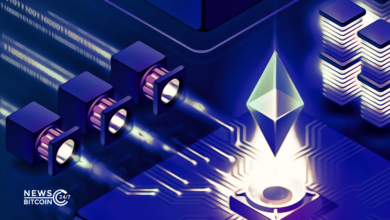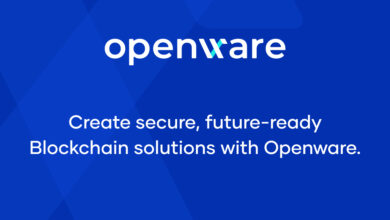Apollo Beats Others in Sharding Race

Since the onset of cryptocurrencies and digital payment methods, the bone of contention for both developers and investors was the lack of sustainability. With speed and scalability already underway, this is the single factor hampering a possible crypto revolution. At least that was the case until the tech giant, Apollo Fintech Group, took the first significant leap. Apollo has introduced database sharding as a practical solution to reducing the transactional load on the blockchain and maintaining decentralization while increasing processing capacity.
More on The Apollo Blockchain
Apollo is currently making waves as the first blockchain to implement database level sharding. This milestone was reached in 2019, after continuous efforts to solve the issue of Bloat (data overload). Sharding is a process that splits the database into segments or shards. This way, blockchain operations do not involve the entire ledger database, but only the segments relevant to the transaction. The result is increased processing speed and indefinite sustainability.
The goal of Apollo Fintech is simple – to safely, securely, and anonymously transact data at the fastest processing time. At the moment, it is arguably the speediest cryptocurrency out there, with the ability to carry out sub-second transactions and a maximum processing time of 2 seconds.
Characteristics of APL
What would crypto be without user accessibility? No complicated coding is required to utilize the network’s Token System, and users can perform both public and private transactions. The use of this crypto spans various industries, and its most substantial presence is in the commercial and government sectors. Compounding the list of “first place achievements,” Apollo is the leading digital coin in the implementation of DApps infrastructure.
The Apollo Sharding Protocol
Sharding is the key to improved blockchain scalability. Cryptocurrencies are clearly on the high rise, and with every computer that joins the network, the system deteriorates. What the Apollo blockchain does is to partition data storage into segments, so information is added to each new segment. This way, transactions won’t always require downloading the entire blockchain.
The first shard released contained 2,250,000 blocks, and based on this new protocol, a new shard forms every 750,000 blocks. Uses of sharding go beyond achieving speed and sustainability. From improvements in peer to peer networking to layout updates and numerous minor fixes to the system, sharding appears to be the milestone that sets APL apart from other stable coins. Despite other crypto companies attempting to implement database sharding, the technology is rather delicate, and no other crypto has been entirely successful to date.
In the words of Apollo Fintech CEO, Stephen McCullah,
although one other coin has claimed to have sharding, it is not accurate, Apollo has launched database sharding, which is what Ethereum is working towards. The only sharding that was released outside of Apollo is Network Sharding, which is not the same and does not affect sustainability in the same way.
At this point, it’s safe to assume that APL is a worthy candidate, and it’s in its way to become the world’s ultimate currency.
GSX is the second digital asset that runs on the Apollo blockchain, and by default, it has access to all the advanced features of APL. Gold Secured Currency, GSX, is a cross between an investment coin and a cryptocurrency combined with the best elements of a stablecoin. This is actually the first coin that guarantees a continuous increase in value. This token cannot deteriorate because it will always fall back on the value of gold, and GSX tokens are redeemable for their gold value. Users receive dividends annually, and all stakeholders collectively own all mining assets and land rights. Visit the Apollo’s GSX page where this token is currently on pre-sale at an incredible 50% bonus.
Anyone interested in investing in APL should head to BitMart.com, the top exchange platform for Apollo.



